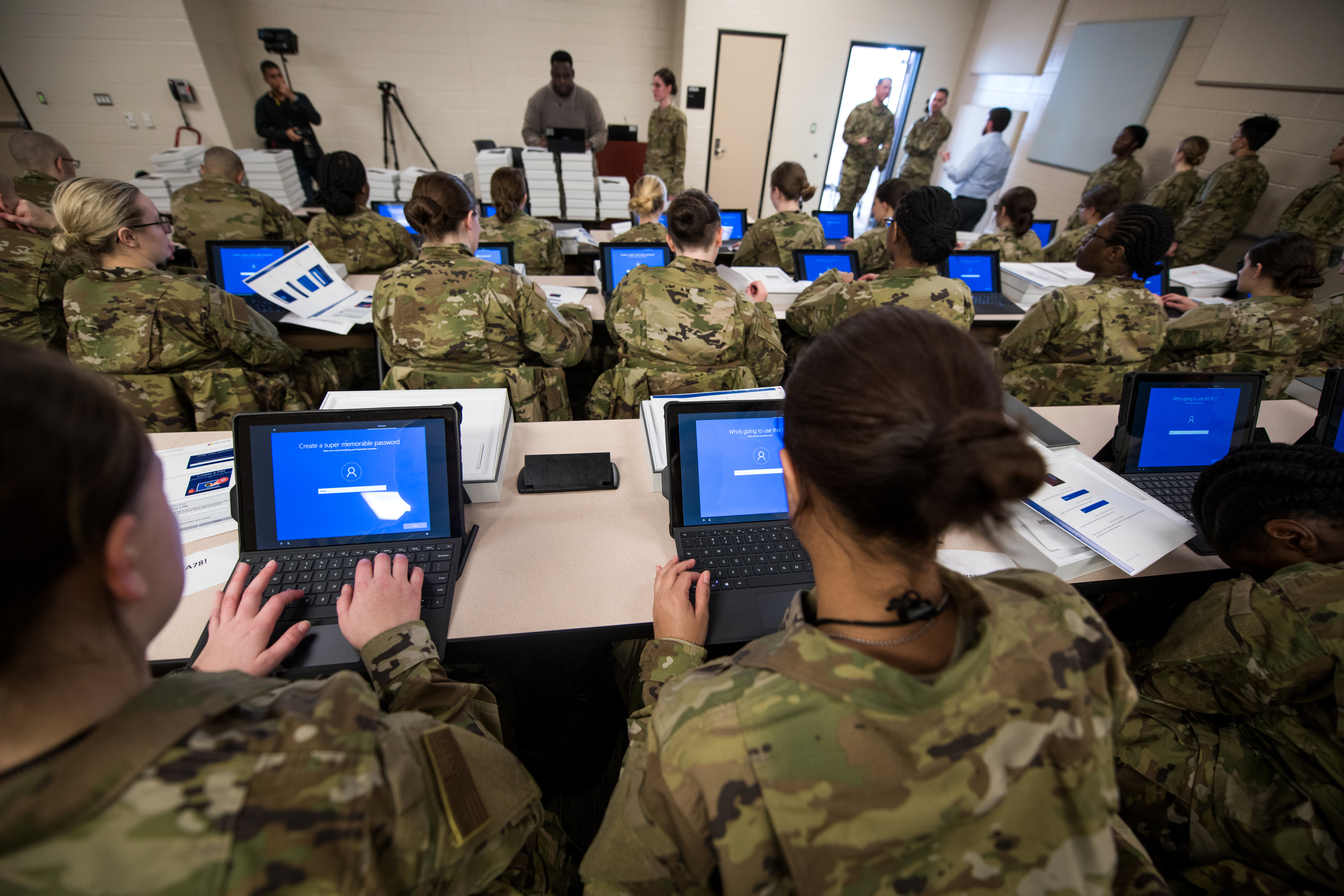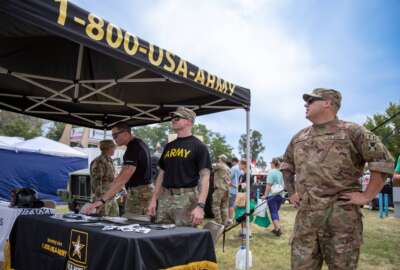DoD rolling out free Wi-Fi to remote barracks
The Defense Department had to jump through a lot of legal hoops to designate Wi-Fi as a mission critical service.
After Defense Secretary Lloyd Austin rolled out a set of “Taking Care of Our People” initiatives in September, the Pentagon’s focus has been on ensuring service members have free and reliable Wi-Fi in remote barracks.
“Some of our barracks are very well set up to be able to just very easily plug in a router. One of the things that we’re doing is focusing on remote and austere locations where access is more challenging. Whether that’s a physical transformation of the building or whether it’s some type of retrofit — all of those are things that we’re going to have to get after to be able to provide these services,” Brendan Owens, the assistant secretary for defense for energy, installations and environment, said last week.
Over the last several years, Defense Department officials have gathered feedback from junior enlisted personnel and military families to get a clearer picture of the challenges of military life. The feedback has shaped a set of initiatives Defense Secretary Austin unveiled in his latest memo.
To provide and expand access to Wi-Fi, Secretary Austin directed all military services to create Wi-Fi pilot projects in fiscal 2024 and fiscal 2025 at no cost to service members, which will “form the basis of a long-term plan to build a Wi-Fi-connected force,” the memo reads.
Owens said the need for internet access is more than just entertainment — junior enlisted service members need internet access for mental health services, especially in places where behavioral health care access is limited, and other resources, whether its online training, military and family life counselors, or simply connecting with family and friends.
“I think that this is certainly something that’s supported down in other parts of the building that it’s a mission essential requirement,” said Owens.
But the Defense Department had to jump through a lot of legal hoops to first designate Wi-Fi as a “mission critical” service.
“That was a fair amount of groundwork that we had to do to overcome the legal barriers. We’ve got a bunch of legal precedent that we’re working our way through,” said Owens.
“After that, the challenge becomes, how do we partner with the installation and the service providers in those areas to make it possible for us to do that.”
Junior enlisted service members have long emphasized the need for having reliable, high-speed internet access. “Every time we go and we visit barracks, the one of the questions that I ask our soldiers, our Airmen, our Marines, our Guardians, whoever in those barracks is, ‘If you could have ten more square feet in your barracks room or free Wi-Fi, what would it be?’ And no one is going to be surprised that a 19-year-old wants free Wi-Fi,” said Owens.
While some of the services have already launched their own efforts to bring free Wi-Fi to military installations – the Department of the Navy launched a pilot program earlier this year to provide internet access to sailors living in Virginia — it’s not clear whether sailors will eventually get internet connectivity on ships during long deployments.
Internet connectivity on ships is often limited primarily due to cybersecurity concerns and bandwidth prioritization – the limited bandwidth is usually reserved for critical military operations.
In his memo, Secretary Austin directed the under secretary of defense for acquisition and sustainment to work with the services to track Wi-Fi pilot programs and share best practices.
Owens said the next step will be creating a Defense Department-wide policy plan.
Copyright © 2025 Federal News Network. All rights reserved. This website is not intended for users located within the European Economic Area.







